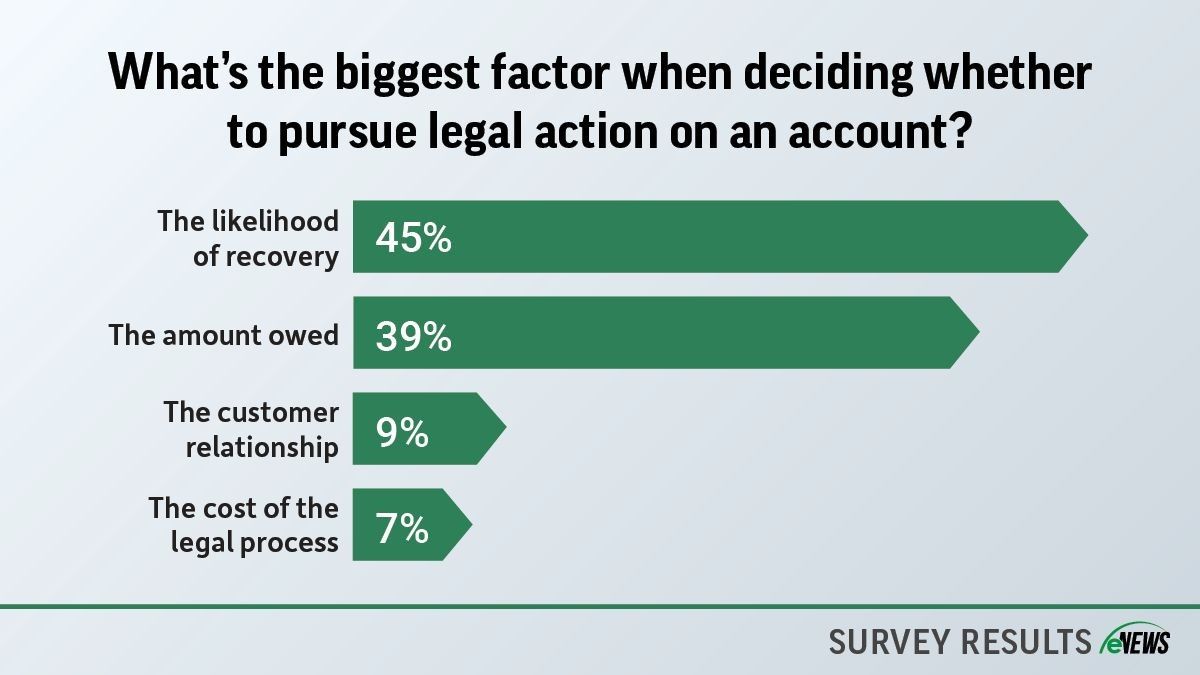Business Practices, eNews
Can NDAs Help Secure Customer Information?
Signing a Non-Disclosure Agreement (NDA) has become standard practice for credit managers seeking access to sensitive customer financial information. By committing to confidentiality, credit managers reassure customers that their data will be handled with the utmost care and discretion. This proactive step not only fosters trust but also makes customers feel more comfortable and confident in sharing vital financial details knowing their information will be protected.

Signing a Non-Disclosure Agreement (NDA) has become standard practice for credit managers seeking access to sensitive customer financial information. By committing to confidentiality, credit managers reassure customers that their data will be handled with the utmost care and discretion. This proactive step not only fosters trust but also makes customers feel more comfortable and confident in sharing vital financial details knowing their information will be protected.
By the numbers: A recent eNews poll revealed 72% of credit managers have signed an NDA at some point in their credit career to obtain important customer financial information.
Some credit professionals will offer to sign a financial NDA proactively because it empowers their company in negotiations. By presenting your own NDA, you can ensure that the terms align with your policies and interests, providing greater control over the confidentiality agreement. This also prevents you from being held liable for information outside of your scope that might be included in a customer’s NDA.
Because an NDA is a legally binding contract, it’s best to have your legal team review them before you sign. “Generally, we prefer to use financial NDAs on our end, so we’ll always press a customer to use our paper first,” said Joe Lange, CCE, ICCE, CCRA, senior credit manager at Brenntag North America, Inc. (Wauwatosa, WI). However, if the customer insists on using their own NDA, Lange said his credit department will run the customer’s information through a system used by his company’s legal team. “A lot of legal offices use tracking systems to have a thorough look at what’s in writing. If our legal department looks at an outside NDA, it ends up being like our approved NDA.”
If NDAs are sent from both the credit department and customer, legal teams on both sides may go back and forth in sending NDA documents to review, whether it’s certain clauses or requirements included in the contract. Stephen Ennis, regional credit manager at Carolina Atlantic Distributing, Inc. (Sanford, NC), said his legal department handles financial NDAs for bigger, multi-billion-dollar corporations. “Typically, your privately held companies are going to be the ones to ask for the NDAs first,” he said. “Mom and pops usually don’t. It’s always easier to have the customer sign your NDA because it’s something your legal department has already reviewed and signed off on. From a time perspective, it also allows you to get it signed quicker and have the legal department look over any changes the customer may want to make.”
Artificial intelligence also can be used for contract review if you need to sign a customer’s NDA. “If I get a financial NDA from a customer, I’ll read it and also run it through an AI tool like ChatGPT,” Ennis said. “I’ll ask it to remove the legalese included in the document and have it tell me what the contract is saying in simpler terms just to double check that what I’ve read and what I think I’ve read are the same thing. I always scrub the documents myself as well and do not rely on ChatGPT alone.”
Credit departments can also work with their sales team to receive financial NDAs. For example, when making a credit decision, if a customer does not qualify based on any third-party information given or if there is no payment history of the customer and there is a need to justify a higher credit line, credit departments can work with sales as the point of communication to request financial statements. “In many cases, the customers will send the information back through our sales team,” said Steve Frederiksen, credit manager of global business at Underwriters Laboratories LLC (Northbrook, IL). “A customer will sometimes send us their NDA first, but our legal team will say we need to send our financial NDA first with our language—so, it can be a little back-and-forth sometimes.”
Some credit professionals like to keep a copy of their customer’s financial NDA on file. “We keep our documents long-term,” Ennis said. “We’ve never gone in and actively deleted material, especially legal documents. We keep the customer’s NDA, and credit file—which are all electronic nowadays—in accordance with our document retention policy.”
The bottom line: You will likely find that customers are willing to sign the NDA to protect their financial information. Inquiring about financial NDAs is one of the best practices for companies to follow to protect themselves and minimize risk. “Never shy away from it,” said Ennis. “Don’t be afraid to sign a financial NDA as long as you know what you’re signing. Always have your legal team or lawyer review it.





